
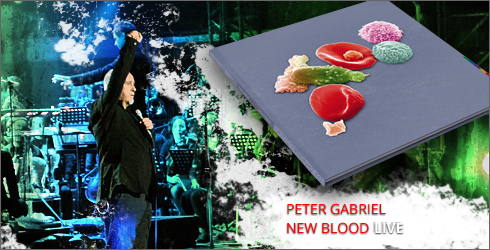
Two weeks after the release of the studio album New Blood here is the film from the accompanying tour. A recording from a concert in Italy last year was abandoned, and instead two nights at the London Hammersmith Apollo theatre were scheduled. These also marked the continuation of the New Blood tour, but the primary reason for these two shows was that they would be filmed for the New Blood Live In London DVD.
As is his wont, Gabriel has gone for the unusual and had the film produced in 3D. It has also been released as such, but it is also available in 2D for people with standard equipment. This makes for a range of release forms that ought be mentioned briefly:
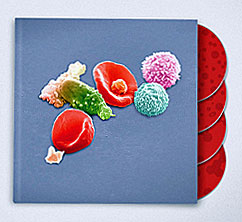
DVD, Blu-ray and 3D Blu-ray come in simple cases typical for the respective formats. The cover artwork is quite simple by the standards of a Gabriel release. The backcover had the design that was used to advertise the cinema shows. The Deluxe edition comes in a book the size of an LP sleeve and shows a completely different cover (see picture). The four discs lie in trays that have been stuck to the inside of the hardcover sleeve of the sturdy book. The book proper contains an incredibly large number of photos by York Tillyer and Armando Gallo who both captured Gabriel's New Blood project from the beginning to the end.
The first impression is very positive: Once you have started the disc you do not have to plough through endless logos and copyright notices, but you are taken straight to the main menu where you are not distracted from the use by superfluous animations.
The different menus use various photos from the concert as a backdrop. These images have been blurred so that the overall impression is that of tasteful art since they offer more form than content.
Small loops from the orchestral arrangements are used in the menus, and some of them are quite interesting. Unfortunately, bits of spoken voice have been mixed into them, probably talk from the production room. The loops come from Downside Up (main menu), The Drop (track selection), Blood Of Eden (subtitles). Most important is the music for the audio selection menu for it is a bit of Lead A Normal Life that has not found its way to the public, at least not completely.
The overall sound is not as clear as in the studio recordings. This is mainly because of the acoustic properties of the venue, which is warm, but has a slight tendency to echo. Some of the details get wiped out by that. The good thing is that it captured an excellent concert atmosphere that makes up for the lost details through its intimacy and immediacy.
Audio is provided, as usual, in Dolby Digital Stereo, Dolby Digital 5.1 and DTS surround. As usual with PG, all three options offer outstanding quality, so there is no need for concern about that.
The rear speakers usually play back echoes from the back and crowd ambience. They are used for the main sound only when a really large orchestra sound was desired. Apart from that there are no surprises. The sound is mixed evenly with a stress in the front centre. Surround sound gimmicks are quite rare, e.g. in the beginning of Digging In The Dirt when the clacking of the metronome moves around the listener.
The image is crisp and clear – anything else would have been a disaster in a production for the HD market. Since several types of cameras were used there are differences in the video quality; these are probably intentional. The footage from the conductor's camera and certain tracking short in the orchestra is a bit flat. There is frequently a little noise in the footage because the lightshow is predominantly red, but that is not really irritating.
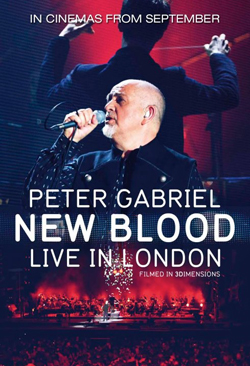
The film is also available in 3D, which is not simply a rehash of the 2D film. It often has different footage. The basic idea of filming the show is obviously the same, but the differences are quite noticable.
The 3D version in general has a calmer, less dynamic cut. Frequently one has simply the camera along the front of the orchestra and relied on the effect that the fine shapes of the instruments protrude nicely out of the screen. It also shows fewer long shots and more close-ups of Peter. All this makes the 3D version, surprisingly, the more sedate version.
Much has been said about whether it makes sense to have concert film in 3D, particularly after an edited version of it was screened in several cinemas. Some enthuse about the plasticity of the image and feel that they are really part of the event while others criticise that the new options were not used very creatively.
A concert film, and particularly one of this kind, does not need spectacular effects, and they have been left off accordingly. 3D gimmicks were used only for select moments when a graphic „rain“ falls from the stage for Red Rain or when notes fly around for the Book Of Love. Apart from that the 3D effect is only visible in that the different layers of the image become visible, i.e. Peter is standing visibly in front of the orchestra and other things. The third dimension is thus not really put to use.
There have been comprehensive reports (here and here) about how the orchestra project came about. At first Peter Gabriel planned only a mini tour of three dates to promote Scratch My Back, but when both the album and the tour unexpectedly turned out to be highly successful it was extended. In the end it became a more or less regular tour with 23 shows in Europe and North America in 2010.
During the early shows Gabriel would play the complete Scratch My Back album as the first half of the show, which made a lot of sense because it is a complete body of music. The second part of the show consisted of a selection of his own songs arranged for the orchestra. This part was constantly being changed and extended throughout the tour so that by the end of it a whole series of Gabriel songs had been „scratched“.
In 2011 Gabriel continued the tour with another 14 shows (six more will follow in Central and South America in November) with a different concept. Only a few songs from Scratch My Back are played whereas the number of his own songs has been raised again. The two shows that were recorded for the present film were the first ones that were played with the new concept.
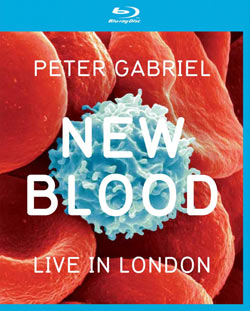 The set list
The set list It is a long evening. Almost every Gabriel song that has been arranged for orchestra is performed. The show beging very gently and remains a bit solemn throughout the first half despite some passages where things grow loud.
The two shows in London were, as said above, the first ones to consist almost only of PG's own songs. Later the set would be shuffled and, according to Peter's assistant Dickie Chappell, became more sophisticated. The present set list leaves some things to be desired.
One can only speculate about why, of all the songs on Scratch My Back, Peter picked the melancholy Boy In The Bubble, the challenging Après Moi or the slow developer Power Of The Heart. Only later would he bring back some of the more gripping hits like 'Heroes' or My Body Is A Cage. At least one of the core songs, The Book Of Love, is included.
Questions may also be asked about the set list itself and the order in which the songs were performed, particularly in the first part. Why did they start off with the frozen Intruder? Why does the show remain so slow for much of the night? The reviewer found that a certain impression of longwindedness crept into the high degree of concentration he felt right from the start. This was especially so with The Power Of The Heart and later with Blood Of Eden, which is quite a spoilsport after The Rhythm Of The Heat. At least Wallflower was in the set and made many fans' dreams come true, and Downside Up is there in the uncut version.
The second half offers more dynamiscm and liveliness. It is the part of the tour that is well-rehearsed and has not changed very much throughout the later tour. The first part seemed to need some repair work. One could say that the Live Blood CD (see below) gives an impression of how the opinion about the set list has shifted, for the tracklist of the CD has almost nothing in common with the actual course of the London shows.
It seems that recording the official tour film at the first two shows where the concept was brand new and the whole set list was still in a somewhat experimental stage was a bit of an unlucky idea. If nothing else it deprived watchers of an opportunity to see and hear Secret World and a couple of highlights from Scratch My Back.
The Hammersmith Apollo is an apt venue. A modern location that lends some dignity to the evening without making it formal. Gabriel appears very focused, sings with an impressively fine voice and looks good. He underlines the songs with facial expressions and gestures; occasionally he says a few words to introduce the songs. Everybody on the stage seems relaxed, and particularly towards the end they simply exude a happy mood with what they are doing.
It does not really seem smooth, though. That is partly because everybody is still adjusting to the new setlist. And the disturbance that comes with a first night. The female singers are not always in synch with each other, not always as if they were singing with one voice. The Drop appears to be a bit fast and the introduction to Downside Up could be more precise. Gabriel himself is occasionally too expressive in his mimics. He seems to have an urge to move around. Towards the end of the first part he becomes fidgety, starts to walk aimlessly across the stage during The Book Of Love; this continues through Darkness and The Power Of The Heart, which does not help to make this song song any tighter. He appears slightly unstable, as if he was looking for the right approach.
The audience take their time, too, until they catch fire in the end. The audience participation during Biko does not take place „with everyone“ [Should one discuss the point of this participation part? No, better not go there...] The mirror trick for San Jacinto is also received without particular reactions by the audience.
It all clears up in the last third, though. The big hits do not fail and get everybody off their feet. Sevara makes a guest appearance for In Your Eyes which is fine, but not spectacular. All in all one realises that this film is from a concert where not everybody has found their feet, but which works out in the end.
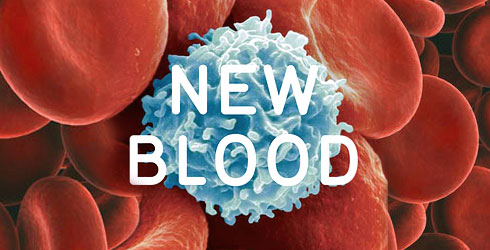 The Film
The FilmBlue Leach, who directed the film, has made a name for himself with works for R.E.M. and Depeche Mode. He has preferred simple means for the present recording and manages to convey the immediacy and spontaneity of the concert event. Very subtly he gives an authentic impression of the night, which gives the watcher the impression that they are right in the midst of it. There is no cool aestheticism, no wild visual orgy. Gabriel’s show leaves a comfortable, dignified impression, not least because of the happy, competent sound mix.
Leach is equally proficient with fast cuts that offer dynamism and slow crossfades for a more sensual impression. Sometimes he uses footage from the stage screens (e.g. for The Rhythm Of The Heat), sometimes also means from the graphic or visual arts department. There is a long shot in Downside Up that is confusingly upside down. Mercy Street is shown in black and white.
Many long shots help us maintain an overview and give us an impression of what is happening on the screens on stage. The animations and visual effects shown there were more or less the only show element during the concert, and it is therefore pleasant to see them (which, unfortunately, is much less the case in the 3D version).
The break in the middle of the show is not covered in the film. It is, of course a bit strange to see Gabriel leave the stage after Biko and to see the ‘screen’ lowered before San Jacinto, but it is not much of a problem.
The “chest camera” is a neat idea. It was tied to Gabriel’s body with a frame and shot his head and shoulders before a moving background. These images are occasionally cut into the footage (Darkness) and create a fascinating impression.
Blue Leach’s film version finds a middle way between idiosyncrasy and self-restraint. One could imagine more creativity in the 3D version. Most of all, though, he manages to create a sensual and authentic document of the concert event – and that is what it is all about.
The only extra is a twenty minute documentary that shows footage from the stage setup and preparations for both shows. Several people who were crucial for the project comment on it. Peter talks about the point of 3D filming, the rehash of “old stuff”, the fascination of orchestral sounds and the meaning of Biko. John Metcalfe talks about his arrangements, Ben Foster speaks about the task of a conductor and Blue Leach talks about filming the shows. The documentary also shows how the chest cam works, complete with a fuck-up of Peter’s. A neat documentary, but nothing that really rocks the world.
The film is intense right from the beginning. With a good musical performance and impressive but un-contrived images, the film is gripping. If one looks past the handful of blemishes one will enjoy the film.
by Thomas Schrage, English by Martin Klinkhardt
Track list concert film New Blood live in London
(identical for DVD and Blu-ray; go here for a set list of the shows) 01 Intruder
02 Wallflower
03 The Boy In The Bubble
04 Apres Moi
05 The Drop
06 Washing Of The Water
07 The Book Of Love
08 Darkness
09 The Power Of The Heart
10 Biko
11 San Jacinto
12 Digging In The Dirt
13 Signal To Noise
14 Downside Up
15 Mercy Street
16 The Rhythm Of The Heat
17 Blood Of Eden
18 Red Rain
19 Solsbury Hill
20 In Your Eyes
21 Don't Give Up
22 The Nest That Sailed The Sky
Track list Live Blood - bonus CD in the Deluxe Edition
01 The Rhythm of the Heat
02 Mercy Street
03 Digging In The Dirt
04 Signal To Noise
05 Intruder
06 Biko
07 San Jacinto
08 Solsbury Hill
09 In Your Eyes (featuring Sevara Nazarkhan)
10 Don't Give Up (featuring Ane Bun)

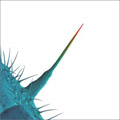

The return favour album: Peter Gabriel's songs are covered by other artists.
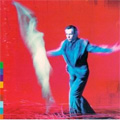

Peter Gabriel created a mixture of the World Music in Passion with the Mainstream of So.
Review Available